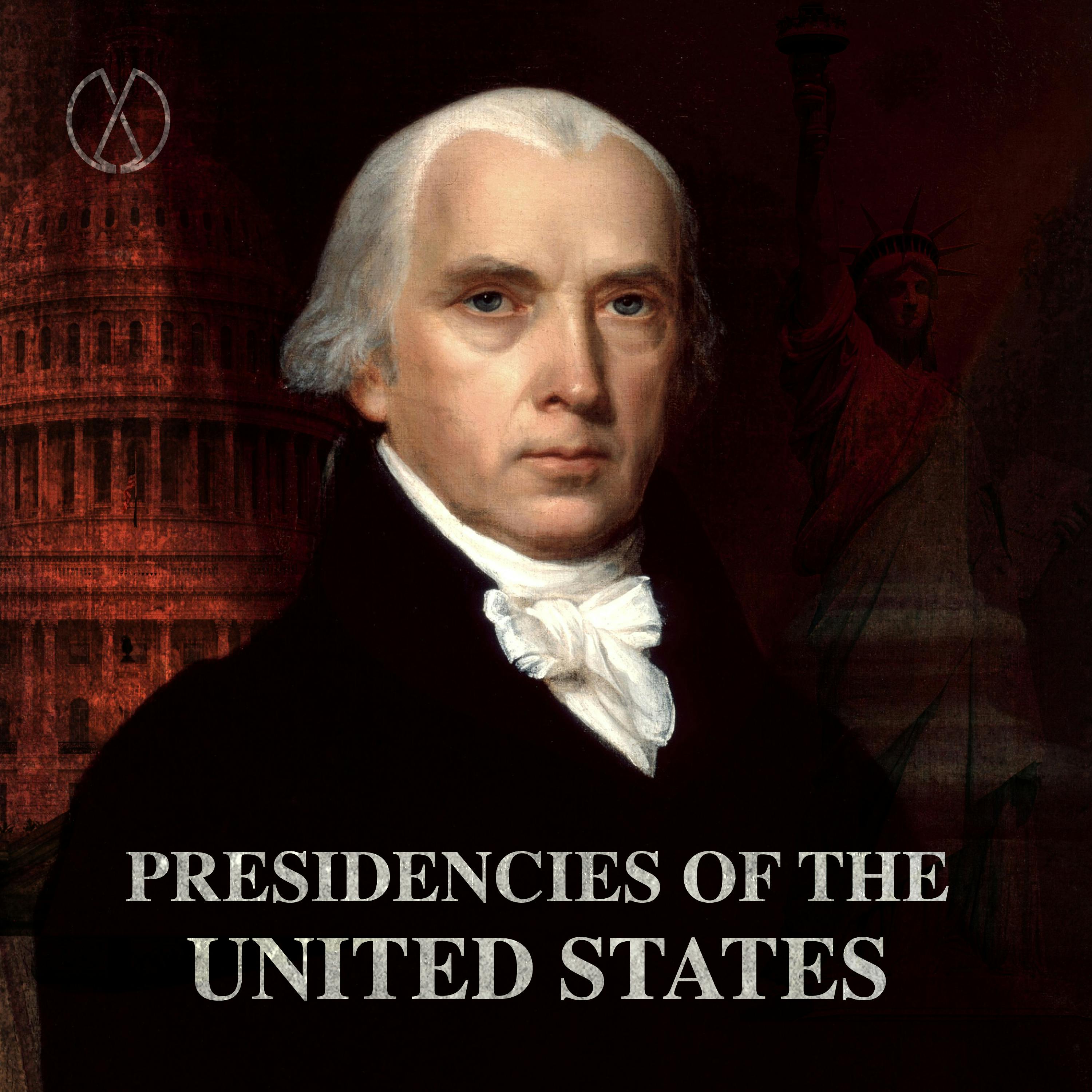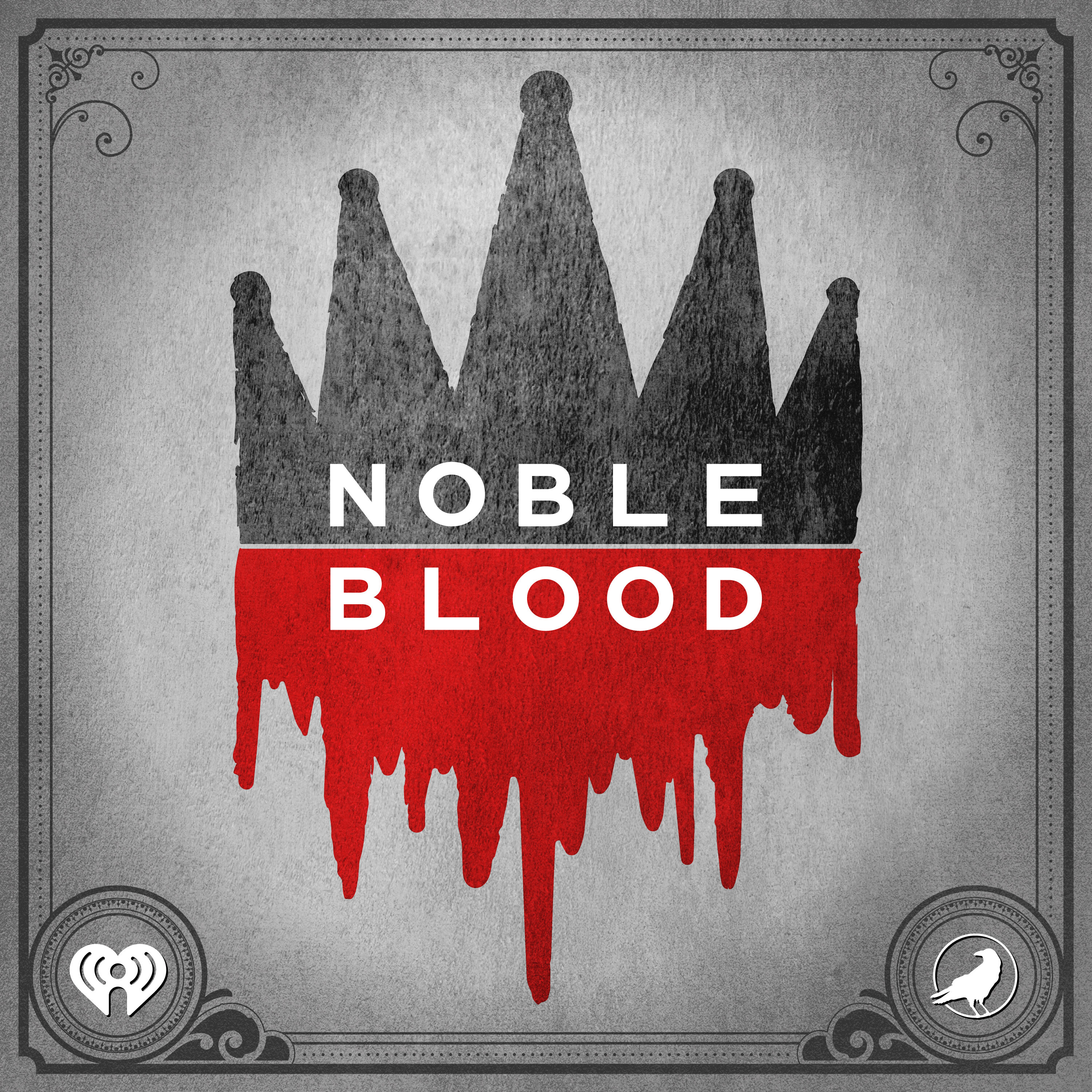
Door Key
I find myself drawn to the more social side of history than dates or battles. While I do think dates and battles are important, I find questions like ‘When did Catherine of Aragon realize she'd lost Henry VIII’s love to Anne Boleyn?’ or ‘Just what exactly was Aaron Burr's deal?’ to be what really fascinates me about history. This is the lens that I view history from on the Door Key Podcast (and the accompanying Substack newsletter) because I'm a dork with a deep love of history who wants to talk about it.
https://doorkey.substack.com/
Door Key
The Romanovs and Anastasia
I would love to hear from you - click here to send Door Key a written message!
During the episode about Rasputin, I promised to tell the story of what happened to the Romanovs after the death of Rasputin - this episode makes good on that promise!
What would happen next would not be good: Russia’s Prime Minister would step down, and Tsar Nicholas II would be forced to abdicate his throne, and a Provisional Government would be formed.
Ultimately, the Romanovs would end up under house arrest at a home that would come to be called ‘The House of Special Purpose’ … this episode gets into all of that, and discusses the mystery of what happened to the youngest Romanov daughter Anastasia.
The podcast Revolutions by Mike Duncan has an entire season dedicated to the Russian Revolution! It’s wonderful, and here’s a link to it if you want to dive further into the Russian Revolution: Revolutions podcast
Here's a link to the episode about Rasputin: https://www.buzzsprout.com/2008007/14899563
☕️ Production & marketing assistance: Coffeelike Media,
https://www.coffeelikemedia.com/
Old Clock Tick Tock by spaceemotion -- https://freesound.org/s/209833/ -- License: Attribution 4.0
Subscribe to the Door Key Substack newsletter FREE and paid options:
https://doorkey.substack.com/
Follow Door Key on Social Media:
- Facebook: https://www.facebook.com/groups/1040108179952433
- Instagram: https://instagram.com/doorkeypod
- Threads: @doorkeypod
- LinkedIn: http://www.linkedin.com/in/doorkeypod
- Email: doorkeypod@gmail.com
Support Door Key:
- Become a paid subscriber on the Door Key Substack newsletter: https://doorkey.substack.com/
- Buy me a cup of coffee: https://www.buymeacoffee.com/doorkeypod
- Make a donation via PayPal: https://paypal.me/Doorkeypod?country.x=US&locale.x=en_US
- use our Buzzsprout affiliate link to host your podcast on this platform
The Romanovs and Anastasia
Hello everyone! During the episode about Rasputin, I promised to tell the story of what happened to the Romanovs after the death of Rasputin, and I’m here today to make good on that promise.
This is really the second part of the story. For the full beginning of the story, and for full context, you should listen to the episode about Rasputin. But just so we’re all on the same page, I’ll give a brief summary: Rasputin was a peasant holy man from Siberia who managed to ingratiate himself with the Tsar of Russia, Nicolas II (I call him Nikolai) and his family. Rasputin was especially loved by Nikolai’s wife, Alexandra. Nikolai and Alexandra had five children: daughters Olga, Tatiana, Maria, Anastasia, and their youngest, their only son and heir Alexei. Sadly, Alexei had hemophilia and Nikolai and Alexandra both, but especially Alexandra, believed that Rasputin alone was able to keep Alexi healthy and alive. The Royal family began to depend on Rasputin more and more, which really upset the people at the royal Court, and the people of Russia. Then World War I broke out, and Nikolai left Russia for the front. He left Alexandra in charge, but she depended on Rasputin for advice on everything. This gave Rasputin a *lot* of influence, which *REALLY* upset the people at the royal court and the people of Russia. Rasputin survived one assassination attempt, only to then be successfully assassinated by a group of nobles.
So the Rasputin episode ends with Rasputin having been assassinated, the Royal family being upset about this, but there’s just this sense that this is all just the beginning.
And that’s where I’m going to pick up the story today …
Russia economy was collapsing, Nikolai was still off at the front dealing with World War I, and the Russian people were on the verge of Revolution. I wish I could say that Nikolai didn’t know how bad things were back at home, but … he did. He was told about the problems in Russia several times, and urged to return home and agree to reform the government. But Nikolai wasn’t trying to hear any of that. He chose to ignore these warnings.
Then, in late February 1917 in Petrograd, a terrible combination of very cold weather and food shortages caused the people to break into shops and bakeries to get bread and other necessities. It was a full-on riot. The police came, but they only made things worse by shooting at people. Nikolai’s advisors *again* begged him to come back to Russia. Nikolai not only said no to this, but he ordered that firm steps be taken against the demonstrators. This was pretty much the straw that broke the camel’s back. By March 12, the military which had always been on Nikolai’s side before this flipped, and by nightfall, 60,000 soldiers had joined the revolution. The Prime Minister stepped down, and a Provisional Government was formed to try to restore order. Sidenote: I think a country forming a ‘provisional government’ is typically a bad sign. I can’t see anything good coming from that.
This Provisional Government demanded that Nikolai abdicate. Nikolai had no choice but to do that.
Nikolai abdicated on March 15. He first abdicated his throne to his son Alexei, but Alexei wasn’t a good choice because of his poor health, so Nikolai instead named his brother Grand Duke Michael as the next Emperor of Russia. To Michael’s credit, he has like ‘yeah, no thank you’ to that, and said he would only agree to it if the people voted that way. The abdication of Nicholas II and Michael’s response of … meh … to being the one to receive the crown ended three centuries of the Romanov dynasty. The people of Russia reacted to this news with mixed emotions: delight, relief, fear, anger and confusion, which … each of those emotions makes sense to me.
Following the abdication, The Provisional Government wanted the royal family to go into exile. Nikolai wanted that as well, with England being first choice.
The British government offered the family asylum, although reluctantly, on March 19, 1917. The British Prime Minister suggested that the family go to a neutral country instead. Nikolai and King George V were cousins (thanks Queen Victoria!), and not only extremely similar in appearance (thanks again Queen Victoria!), but also were close, like they were friends. So it’s sad to me that the offer of asylum was withdrawn. While some recollections may very, there are different reasons for this decision of asylum being changed. It’s my personal, uneducated, speculation that this decision was made to protect the standing of the British royal family. Honestly, I don’t even mean any shade by saying that, it’s just … I mean, we’ve all seen The Crown, so we know that it needs to always come first in any decision, right?
No other country was an option for the royal family to be exiled to, so they stayed in Russia. The Provisional Government put them under house arrest in the Alexander Palace on March 20, 1917. Nikolai joined the rest of his family there two days later.
At first, house arrest wasn’t too bad for them. The family had total privacy inside the palace, but they were strictly regulated when they walked outside. Their staff were allowed to stay if they wanted, and quote ‘culinary standards were maintained’, so they were even eating well.
Then, a battle called The Kerensky Offensive happened, which was the last Russian offensive of World War I. The Russians lost this battle, which led to anti-government rioting in Petrograd. This rioting was too close to the Alexander Palace for the government’s comfort, so it was decided to move the imperial family to a different location.
The prime minister, Alexander Kerensky, selected the town of Tobolsk in Western Siberia, since it was very remote.
Tobolsk, Siberia just happens to be the very place in Russia where Rasputin was from. I tried to find out if the royal family was really sent there just because it was so remote or if it was more like ‘Oh, you guys loved Rasputin so much? Well then why don’t you go live in Siberia where he was from?’ But everything I found says it was just because it was in the middle of nowhere. So I guess that bit of pettiness is only in my mind. If anyone out there knows the answer to this please reach out … inquiring minds want to know!
The family arrived in Tobolsk on August 19. While they were there, they lived in the former Governor's Mansion, so they were pretty comfortable.
But the Bolsheviks took the Provisional Government over in October 1917. It’s said that Nikolai followed these events with interest but not yet with alarm at this moment. Like DEFCON I levels of alarm.
There were several attempts made to rescue the family, but none of them ever came to anything. In the meantime, Nikolai and his family occupied themselves with reading books, exercising, and playing games.
Then, in January, 1918, the guards grew more restrictive. They cut the hours that the family could spend outside, and banned them from walking to church on Sunday as they had been doing since they got there.
Nikolai was asked not to wear his uniform outside for fear of provoking anger from soldiers.
In February, 1918, the Council of People's Commissars in the new capital of Moscow announced that the state subsidy for the family would be drastically reduced, starting on March 1. This meant the family had to part with twelve servants and give up butter and coffee as luxuries.
Russia signed the Treaty of Brest-Litovsk, which agreed to give up a lot of land. Nikolai and Alexandra were horrified at this. But the family kept their spirits up, believing that help was coming. They thought that there were plots to save them, but there just weren’t.
The situation in Tobolsk changed for the worse on March 26, when 250 Red Guards arrived. A group of 400 rival guards arrived soon. The two groups caused such a problem, that a man named Vasily Yakovlev was asked to bring the Romanovs to Yekaterinburg, with the intention of eventually bringing Nikolai to air quotes here ‘trial’ in Moscow.
Yakovlev was a Bolshevik, and he paid-off and demobilized the guards who were watching the Romanovs, and placed even further restrictions on the Romanovs. He then said that Nikolai was to be transferred to Yekaterinburg.
The next day, Yakovlev informed the guard in charge that Nikolai was to be transferred to Yekaterinburg. Alexei was too ill to travel, so it was decided that Alexandra and Maria would go with Nikolai. The other daughters would stay in Tobolsk with Alexei until they were able to make the journey.
At 3 am on April 25, the three Romanovs, escorted of Yakovlev's guards, left Tobolsk. After a long journey, they boarded a train.
Yakovlev was able to communicate secretly with Moscow, and got them to agree to change their destination to Omsk, where it was thought that the leadership was less likely to harm the Romanovs.
So the train headed off to Omsk, but this made people think that Yakovlev was double crossing everyone. Two thousand armed guards were sent to arrest Yakovlev and the Romanovs. The train was stopped, and after some discussion, it was decided that the train would actually go to Yekaterinburg after all, in return for a guarantee of safety for the imperial family. They got to Yekaterinburg on April 30.
The family was imprisoned in a two-story house called Ipatiev House, It was the home of the military engineer Nikolay Ipatiev, and would come to be known as ‘The House of Special Purpose".
As its ominous name suggests, things weren’t good for the Romanovs at the House of Special Purpose. And they would only get worse. Their food was reduced even further, and their belongings were searched.
The family accused some of the guards of stealing, so a man named Yakov Yurovsky was appointed to command the guards. Yurovsky replaced many of these guards with members of a special-service detachment that he trusted. Sidenote: even saying this out loud … like I want to just be like ‘Warning! Warning! Warning!’ ‘Danger! Danger! Danger!’
The members of the family that had remained in Tobolsk arrived in Yekaterinburg on May 23.
By the first weeks of June, the Bolsheviks were alarmed, because enemies were approaching from the east. This prompted a wave of executions and murders of those in the region of people who were believed to be counter-revolutionaries. One of those people was Nikolai’s brother, Grand Duke Michael, who was murdered on June 13. Sidenote: Yes, the Michael who’d turned down the crown earlier.
Believe it or not, *this* is when things started getting really bleak for the Romanovs. The Bolshevik leadership in Moscow said that they still wanted to bring Nikolai to trial. But as the military situation got worse, Leon Trotsky and Yakov Sverdlov began to publicly wonder about the possible fate of the former tsar.
On July 16, opposing forces were expected to reach the city, so leadership in Yekaterinburg told Yurovsky that they were going to execute the Romanovs as soon as they got approval from Moscow. Yekaterinburg sent a coded telegram to Moscow that night. A reply was said to have been sent, but that document hasn’t ever been found.
In the meantime, Yurovsky had organized his firing squad and they waited through the night at the House of Special Purpose for the signal to act. And that signal came.
There are several accounts of what happened next, and historians have not agreed on one solid, confirmed course of events. However it happened, the results were horrible and brutal. But I’m going to give a very brief summary of Yurovsky’s account, since he was the chief executioner. According to him, the guards woke the family up at about 2 am in the morning on July 17, 1918. They were told that they needed to be moved for their safety, and were told to get dressed, and then led downstairs to a basement room at the back of the House of Special Purpose.
So there was Nikolai, Alexandra, and their children. Their doctor and three of their servants were also with them. A firing squad was waiting in an adjoining room. Nikolai was carrying Alexi. When the family got to the basement, he asked if chairs could be brought in for his wife and son to sit on. Two chairs were brought in, and once Alexandra and Alexi were seated, the executioners came in. Yurovsky announced to them that they were to be executed. The executioners then drew their guns and began shooting. The entire family, the doctor, and the three servants … they were all killed. Brutal.
The bodies were driven to nearby woods, searched and burned. The remains were soaked in acid and then thrown down an old mineshaft. Again: brutal.
The next day, other Romanov family members who were being held in another town were also thrown down a mine shaft … only it seems like they were alive when that happened. I know, it’s all so terrible.
An announcement from the government was made that said that conspiracies had been exposed to free the Romanovs, that counter-revolutionary forces were pressing in on Soviet Russian territory, and that Nikolai was guilty of unforgivable crimes against the nation:
‘In view of the enemy's proximity to Yekaterinburg and the exposure by the Cheka of a serious White Guard plot with the goal of abducting the former tsar and his family … In light of the approach of counterrevolutionary bands toward the Red capital of the Urals and the possibility of the crowned executioner escaping trial by the people (a plot among the White Guards to try to abduct him and his family was exposed and the compromising documents will be published), the Presidium of the Ural Regional Soviet, fulfilling the will of the Revolution, resolved to shoot the former Tsar, Nikolai Romanov, who is guilty of countless, bloody, violent acts against the Russian people’.
And that was that. The Romanovs were no more, Russia no longer had a monarchy.
The story I just told is a very over-simplified, condensed version. If you’re interested in a full, complete version of the Russian Revolution, I highly, highly recommend a podcast called Revolutions by Mike Duncan. That podcast has an entire season dedicated to the Russian Revolution, and is absolutely amazing. I’ll put a link to it in the show notes.
You would think that this would be the end of this story, but that’s actually not the end of the Romanov’s story. There’s more.
For the sake of the story I’m telling today, I’m going to just breeze over 60 years of Russian history and just say that nobody knew what happened to the remains of the Romanov family. Or, maybe I should say that anyone who did know wasn’t saying anything … look, I’m just saying: things were really dark and bleak.
There were rumors though that the two youngest of the Romanov children, Anastasia and Alexi had managed to somehow survive what had happened, and escaped. This makes sense to me – the Romanovs had faced a horrible death, and I could see how it would be a bit of a comfort to people for them to imagine that at least two of the children had made it out.
People would pop up from time to time, claiming to be one of the Romanovs. The most well-known of these claims was made by a woman in Germany in 1920. By 1922, her claims were known all over the world. Most of Anastasia’s family, and those who had known her, said that this woman was an imposter, but others were convinced she was Anastasia. Then, Alexandra’s brother, who was the Grand Duke of Hesse hired a private investigator. The private investigator said that this woman was actually a Polish factory worker with a history of mental illness named Franziska Schanzkowska, but she’s better known as Anna Anderson. There was a long court battle, but the German courts would eventually rule that Anna had failed to prove she was Anastasia. Anna kind of floated around between Germany and the US with various supporters and in nursing homes until she emigrated to the US for good in 1968, where she got married.
But then there was a twist to the plot of this story too: in 1979, some bodies were found near what used to be Yekaterinburg by an amateur archaeologist. These were the bodies of Nikolai, Alexandra, three of their daughters, and the four non-family members that had been killed with them. So … the body of one of the daughters and Alexi was missing from this group … could this mean that the rumors of Alexei and Anastasia escaping could have been true?
Anna Anderson would die in 1984. Her body was cremated, and her ashes were buried in Germany. But don’t worry, Anna didn’t take the truth of if she was really Anastasia or not with her to the grave. She might have, but science, uh, finds a way.
In 1998, the remains of the bodies that had been discovered in Russia back in 1979 were excavated, and officially identified as Nikolai and his family, excluding one daughter (either Maria or Anastasia) and Alexei. These identifications were done by using DNA, performed separately by Russian, British, and American scientists – and the findings were found to be conclusive. But the question of what happened to Alexei and Anastasia remained …
Then, in July, 2007, an amateur historian discovered bones near Yekaterinburg that belonged to a boy and young woman. DNA analysis proved that these bones belonged to the two Romanov children that had been unaccounted for. Some DNA was provided by Queen Elizabeth II’s husband Prince Philip for comparison, as he was Alexandra’s grandnephew. That same day, it was announced by Russian authorities that remains from the entire family had been recovered. Yeah, science!
So that’s the story of The Romanovs and what happened at the end of the Romanov dynasty in Russia. Then there was the mystery of Anastasia that followed, which is honestly my favorite kind of mystery, because it comes with a conclusive, definitive answer at the end. We have closure.
The years in Russia following the fall of the Romanov dynasty would be … dark, to put it mildly. I’ll be talking about that period of time on the next episode of Door Key, closing out this part of Russian history.
Here are some of the sources I used for this episode:
Biography.com / Brittanica / BBC.co.uk / Wikipedia
Podcasts we love
Check out these other fine podcasts recommended by us, not an algorithm.

Vulgar History: Regency Era
Vulgar History | Realm
Presidencies of the United States
Evergreen Podcasts
World Herstory
Tabitha Bear
History with Jackson
History with Jackson
Civics & Coffee: A History Podcast
Alycia Asai
Deep into History
Deep into History
Plodding Through The Presidents
Howard & Jessica Dorre
You're Wrong About
Sarah Marshall
Our Fake History
PodcastOne
Noble Blood
iHeartPodcasts and Grim & Mild